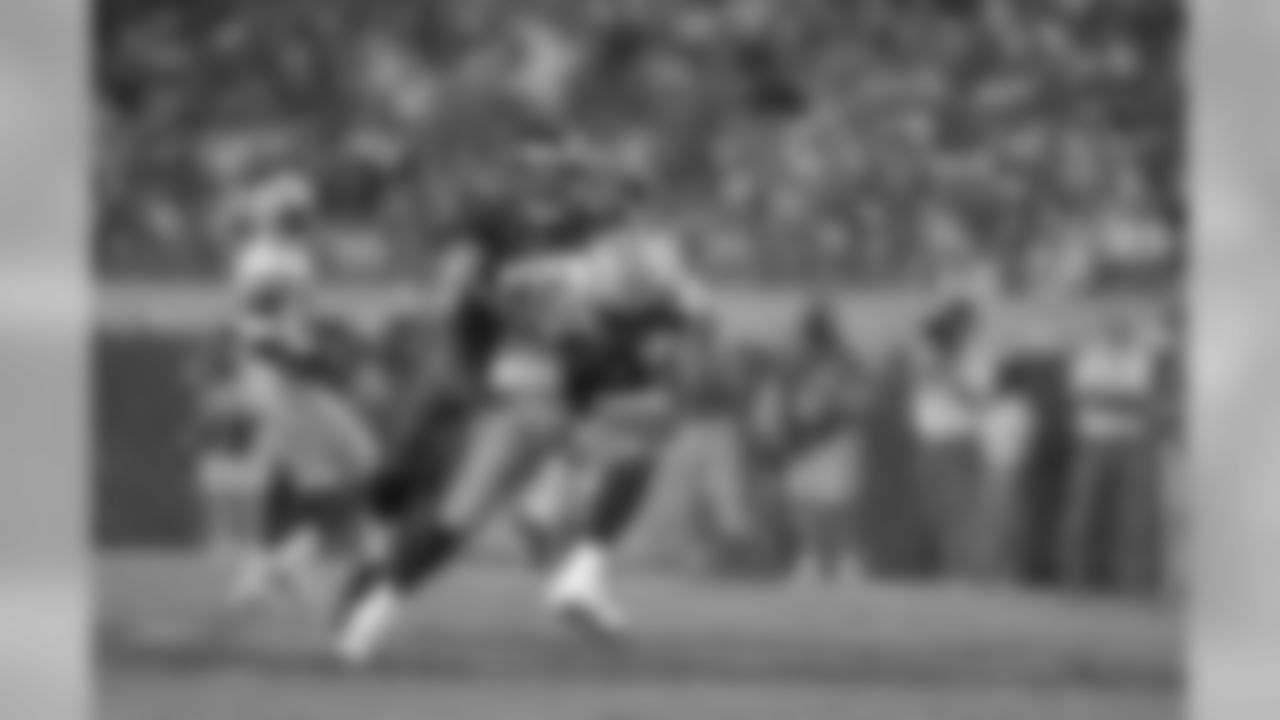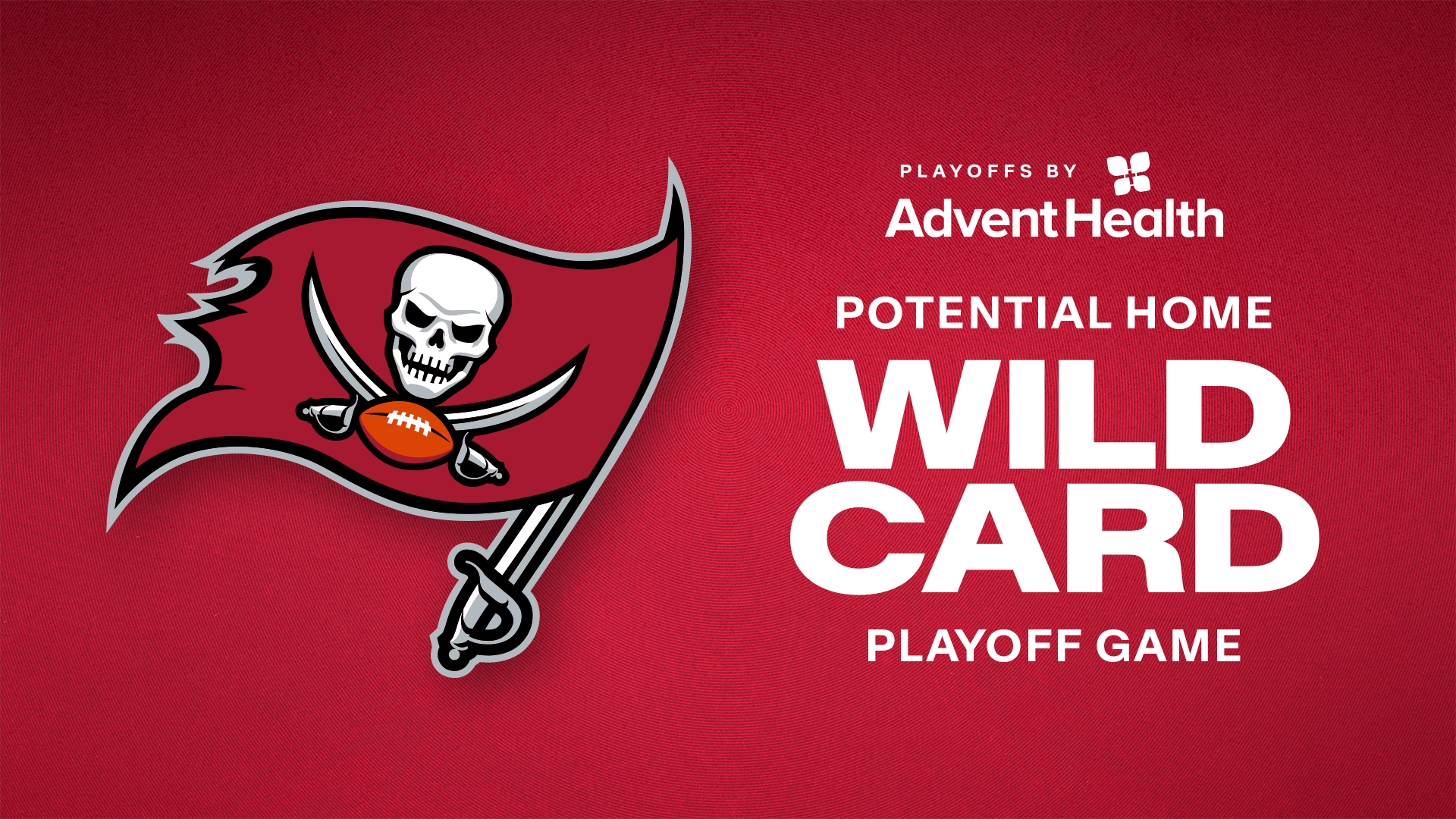Check out photos of Hall of Fame Semifinalist and former Tampa Bay Buccaneer S John Lynch.




















On Saturday, the Pro Football Hall of Fame Selection Committee will meet behind closed doors in Minneapolis to choose the Hall's Class of 2018. Up to five modern-era players will be selected for induction from a list of 15 finalists.
For the fifth year in a row, that group of finalists includes former Tampa Bay Buccaneers safety John Lynch. Here are the top five reasons that Lynch should get a call from the Hall of Fame this year.
1. He Went to Nine Pro Bowls.
After three seasons in ill-defined roles under Sam Wyche's coaching staff, Lynch blossomed when Tony Dungy and Monte Kiffin arrived in 1996 and installed the "Tampa Two" defense. The Pro Bowl invites began arriving shortly thereafter. Lynch was chosen as an all-star in 1997 and every year from 1999-2002. Later, after joining the Denver Broncos in 2004, Lynch went back to the Pro Bowl in each of his last four seasons.
The only safety in the history of the NFL who had more Pro Bowl invitations was Hall of Famer Ken Houston, with 10. There are 66 players who have been to nine or more Pro Bowls and are eligible for the Hall, and 58 of them have already been enshrined. There are three players with nine Pro Bowl invites and a Super Bowl championship ring who are not yet enshrined in Canton, and all three are on this year's ballot: Lynch, Alan Faneca and Ray Lewis.
**
- He Was Incredible in the Clutch.**
Lynch had 26 career interceptions, a fine total that blends well with his 1,054 tackles, 100 passes defensed, 13 sacks and 16 forced fumble to paint the picture of an all-around impact performer. There are safeties already enshrined in the Hall who have significantly higher interception totals, however, such as Houston (49) and Mel Renfro (52).
Since there are two safeties on this year's list of finalists, it is inevitable that the statistical accomplishments of Lynch and Brian Dawkins will be compared during that long Saturday meeting. Dawkins has the upper hand in that category, with 37 career interceptions. However, a closer examination reveals that Lynch may have been the more timely interceptor.
Of Lynch's 26 career interceptions, 14 came in the fourth quarter of games. Of those 14 fourth-quarter interceptions, 11 came with his team either leading or trailing by seven points. In other words, Lynch quite often created his turnovers when the game was still very much on the line. That is likely why 21 of his 26 interceptions came in victories. In contrast, Dawkins' 37 interceptions, include nine that occurred in the fourth quarter. Of those nine, three came with his team either up or down by seven or fewer points. Twenty-two of Dawkins' interceptions came in victories, 15 in losses.
None of that lessens Brian Dawkins' Hall of Fame credentials in any way. He was clearly an elite performer and an impact player for his teams. But neither should Lynch be considered a lesser candidate due to the lower interception total. He got them when they mattered most.
3. He Was One of the Most Feared Hitters in NFL history.
When NFL Films elected to put together a top 10 list of the "Most Feared Tacklers" in league history, including Lynch was a no-brainer. As Hall of Famer Marshall Faulk explains in that video feature, when you lined up to play the Buccaneers, "You made sure you located 47."
Lynch once described his approach to dropping ballcarriers as an attempt to tackle through three players at once. That was bad news for the single opponents who absorbed that triple hit, which often came with little warning thanks to the excellent angles Lynch would take to the ballcarrier. Even when he wasn't credited with a tackle, Lynch's intensely physical play made a difference. As Mike Tomlin once explained, "Numbers don't tell the full story of John's impact; he absolutely destroyed the tight end-side run game of everyone we played."
Five of the 10 players on that NFL Films list of feared tacklers are already in the Hall of Fame: Dick Butkus, Jack Lambert, Dick Lane, Ronnie Lott and Lawrence Taylor. Ray Lewis is likely to join them this year. Hard hitting is an art, and the best artists belong in Canton.
4. He Was a Critical Part of One of the Best Defenses of All Time.
Tampa Bay's Super Bowl-winning 2002 defense is rightfully considered one of the best single-season defenses in NFL history. That was the peak of the Bucs' defensive dominance that began in the second half of the 1990s, but it was also part of an incredible run of sustained success.
From 1996 through 2003, Lynch's last eight years in Tampa, the Buccaneers' defense finished in the top 10 in the NFL's defensive rankings every year, including four top-five finishes. The Bucs were also top 10 in scoring defense every year from 1997 through 2003. Tampa Bay's pass defensed ranked in the top five in six of those eight campaigns.
Lynch was also referred to as one of the Buccaneers' "Big Three" along with Hall of Famers Warren Sapp and Derrick Brooks. There's no doubt that Sapp's relentless pressure up the middle and Brooks' sideline-to-sideline range were instrumental in building such a fierce defense, but Lynch's contributions were just as important. He was asked to provide deep coverage on some occasions but also spent quite a bit of time closer to the line of scrimmage than most safeties. He was critical to the Bucs' run defense but he also had to cover athletic tight ends.
5. "He Occupied a Spot in Your Mind."
Allow us to turn over #5 on this list to Hall of Famer Barry Sanders, perhaps the most difficult running back ever on which to land a clean hit. Sanders' own words make it clear how much of an impact Lynch had on the game, and what made him stand out from his peers:
"John was as good as any safety I ever played against. He reminded me a lot of guys like Ronnie Lott and Steve Atwater. He was a terrific player, a great defender, a fierce defender. He could knock the snot out of you. John Lynch didn't just play the position, he occupied a spot in your mind and you had to be aware at all times where he was on the field."























